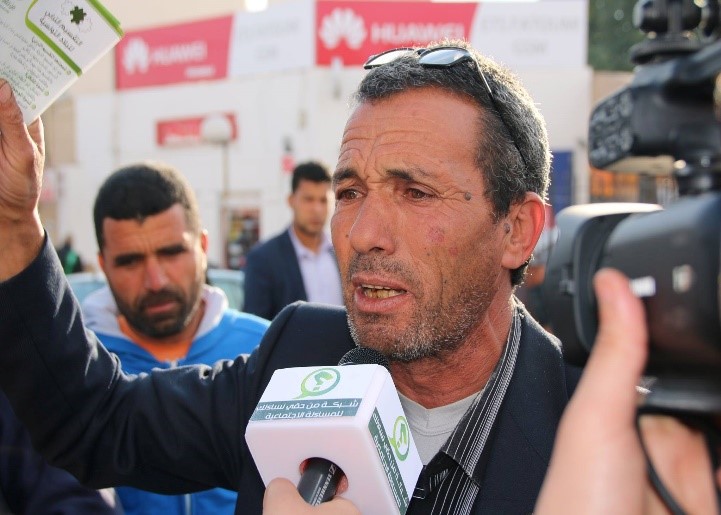
As Country Director for IRI in Tunisia, I am taking classes to improve my French language skills.
I pester my tutor and staff to help me learn French terms for our work. Although I can order anything off a menu and ask for directions in French, I want to learn the language of decentralization, political parties and local government.
Recently when I was meeting with the training director from one of the political parties, he kept saying the word “appartenance” when he spoke. I asked my staff person to translate that word and he said it means “belonging” or a “sense of belonging”. The training director was speaking about the need for members of parliament to have a sense of belonging to their newly formed political party.
That word really resonated with me and made me reflect on our work about how we can support creating a sense of belonging for citizens with their community and their country after an incredible revolution just 5 years ago.
Two years ago, IRI created a civil society network, Min Haqi Nsa’alak (MHN) – or My Right To Hold You Accountable. We wanted to help citizens hold politicians accountable for the promises they make once they were elected. Additionally, the government announced that they would start looking at how to decentralize their very central government and provide for some power and autonomy to local governments. For the past year, MHN members conducted surveys in every region of the country and talked to citizens about the priorities for their communities and for local government. We worked with them to hold public forums to bring together – and sometimes for the first time – members of parliament, government ministry staff and civil society – to talk about challenges in their community. With this, they launched an awareness campaign about decentralization. They conducted interviews around the country and asked three questions:
- Do you know what decentralization means?
- What are your expectation for local elections?
- How do you see women and youth participation?
The video is eye-opening.
And I would guess if you asked Americans on the street about what Federalism meant to them, you would get some confused looks as well!
What do Tunisians want? Clean streets and improvements to their community. Jobs. Development in all the country, not just in Tunis. And like in the U.S., they want to feel that they are a part of their country, their voice is heard, they are valued, and they belong. I have heard this many times in meetings with youth, women and other members of civil society.
Technocrats will think of decentralization as a series of steps to devolve key authorities, such as budgeting, taxes, and different services to local government. That is completely fundamental and essential. However, I would argue for decentralization to be successful, our programs also need to help create a connection or relationship between local government and citizens. When you feel you belong, you care and you will likely be more supportive and work towards a better community and an improved quality of life. How to do that? Allow and trust youth to lead activities. Have meaningful dialogues with citizens. Institutionalize ways for citizens to participate in government. Be more transparent. Don’t have “prepared” discussions, as one civil society activist here said to me. Two way conversations with listening and discussion will help all stakeholders understand the concerns of all as well as the commonalities they share. Celebrate your community with arts and culture events.
Having worked in local government in the U.S. and consulted with municipalities internationally, creating a sense of community, connection and belonging is critical for decentralization to be successful. Elected Mayors and Councilors and local government staff cannot provide public services by themselves. They need citizen champions in their community who share a vision for effective local government and are willing to help them achieve it. So as we assist municipalities to manage budgets and develop, let’s not forget to help them create a sense of belonging and strong ties to the community to create a more effective, decentralized form of government.
You can learn more about Min Haqi Nsa’alak on their facebook page: https://www.facebook.com/menhakinsalek/ (in Arabic). I post about Tunisia @laurajhagg.
Top